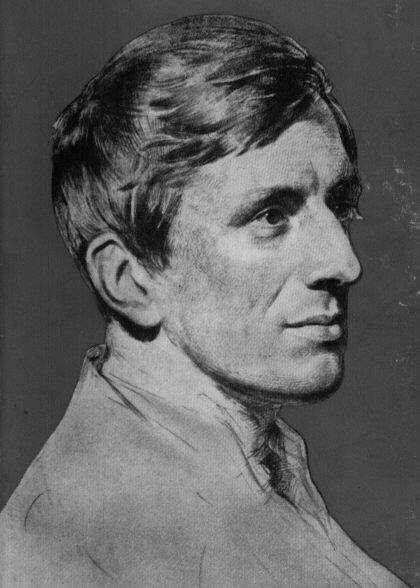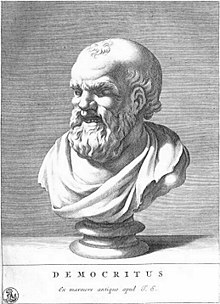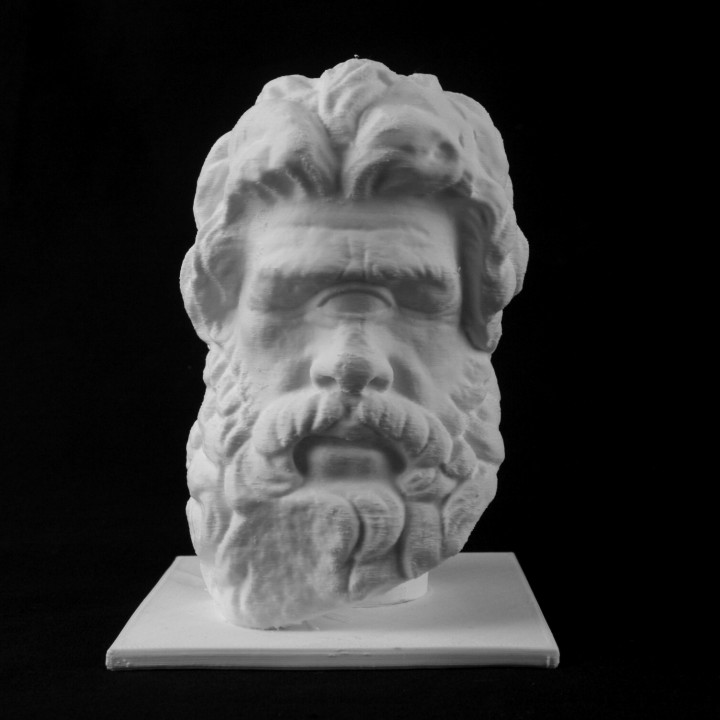Every serious discussion about Catholic Liberal Education (which I call “Catholic Classical Education” sheerly for marketing purposes) must perforce dwell at considerable length from time to time on Homer and his works- especially the Iliad and the Odyssey.
And this is because, as someone said long ago,
“Homer is the teacher of Greece”
Now let’s indulge ourselves in a little syllogism with a large conclusion.
-
Homer is the teacher of Greece.
-
Greece is the teacher of the world, that is Greece is the teacher of all.
Therefore Homer is the teacher of all!
That little switch in the second premise is of course purely for reasons of allowing us smoothly to support the title of this post. But it certainly is a large conclusion isn’t it?
Homerus Omnes Docuit!
Sometimes one meets a person who has awakened late to the realization that attaining a liberal education is an obligation that human nature places on each person. And this is of course a wonderful thing to see in anybody. It is never too late to realize this- although admittedly those who realize it earlier have a small head start. Nonetheless, like the parable of the workers in the vineyard, there are many stories of those who have commenced their own liberal education at the “eleventh hour,” so to speak, for whom the rewards of wisdom have equaled or even surpassed those who may have started in their childhoods.
Now, I am not endorsing death bed conversions to liberal education. My own livelihood as a teacher at a classical school depends on a fairly early realization that all children should have a liberal education. But in a spirit of snootiness, I submit the parable as a consolation for all of you “Liberal Education Johnny Come Lateleys” just to bolster your spirits.
Nonetheless, the question arises for the person who suddenly realizes,
“I have completed my education, but miserabile dictu! I am not educated!”
This person is blessed. What humility! I have even heard stories of highly degreed people that make this realization. It may not be true but I like to think that Robert Maynard Hutchins was such a person, perhaps through contact with people like Mortimer Adler.
There are many such people, and inevitably among the first thing they think to themselves is,
I need to start reading! But where shall I begin?!?
To which we reply with confident placidity:
Homer, of course!
As a matter of fact, I think I would just go ahead and put the Chesterton down. One would not want to go to one’s grave having read Chesterton and not Homer. What a spectacle that would be. Imagine having to explain that one to St. Peter!
As if to make the very point that I am making, Pope Emeritus Benedict XVI went ahead and beatified John Henry Cardinal Newman in 2010!
Now you may be asking yourself, “What does the beatification of Newman have to do with reading Homer?”
Well, the connection is fairly plain for anyone who has eyes to see and ears to hear. Listen to Newman (whom I think we should just go ahead and call “the Apostle of Liberal Education”),
The great poet (Homer) remained unknown for some centuries,—that is, unknown to what we call fame. His verses were cherished by his countrymen, they might be the secret delight of thousands, but they were not collected into a volume, nor viewed as a whole, nor made a subject of criticism. At length an Athenian Prince took upon him the task of gathering together the scattered fragments of a genius which had not aspired to immortality, of reducing them to writing, and of fitting them to be the text-book of ancient education. Henceforth the vagrant ballad-singer, as he might be thought, was submitted, to his surprise, to a sort of literary canonization, and was invested with the office of forming the young mind of Greece to noble thoughts and bold deeds. To be read in Homer soon became the education of a gentleman; and a rule, recognized in her free age, remained as a tradition even in the times of her degradation. Xenophon introduces to us a youth who knew both Iliad and Odyssey by heart; Dio witnesses that they were some of the first books put into the hands of boys; and Horace decided that they taught the science of life better than Stoic or Academic. Alexander the Great nourished his imagination by the scenes of the Iliad.
I tell my students that a Lyceum education used to consist in having simply read the Odyssey and the Iliad. That alone would substantiate legitimate grounds for the conferral of a Lyceum diploma.
Now, over time Newman explains, education became a little more complicated.
As time went on, other poets were associated with Homer in the work of education, such as Hesiod and the Tragedians. The majestic lessons concerning duty and religion, justice and providence, which occur in Æschylus and Sophocles, belong to a higher school than that of Homer; and the verses of Euripides, even in his lifetime, were so familiar to Athenian lips and so dear to foreign ears, that, as is reported, the captives of Syracuse gained their freedom at the price of reciting them to their conquerors.
I love that. The Syracusans evidently understood what liberal education really is. If one is not liberally educated then one is a slave of sorts– and might as well be in chains! As soon as one learns to recite Homer by heart, however, certainly such a one is a slave no longer but a free man; a liberally educated lady or gentleman and therefore must be set free at once!
The father of the Atomic Theory, Democritus, knew why an education in Homer might constitute a complete liberal education.
“Homer, obtaining by fate a divine nature, built a cosmos of all kinds of verse.”
One cannot be liberally educated unless one has some education about the universe in all of its parts. Unfortunately there are many who think that being educated in one thing or another, limiting their intellectual formation to this or that specialty, is an appropriate pursuit for a human being. Psssshawwww! Foooooo!
These ones would seemingly prefer the kind of life that Polyphemus the Cyclops enjoyed, if one can say “enjoyed.”
Those who have one eye have no depth perception, and therefore live life on the surface- and a very narrow surface at that.
In defense of Polyphemus, my understanding is that he was born with one eye, whereas those who narrow their vision by premature specialization appear to pluck an eye out voluntarily!
But Homer wrote a cosmos in verse, and in reading Homer one is educated in the cosmos. That is to say, in reading Homer one is educated in every aspect of life and the world; he is educated in ethics, political science, the philosophy of nature, worship, the fine arts, the soul, the family, friendship, marriage, architecture, and much, much more….even cuisine!
If you doubt me, there is only one solution.
Read yourselves some Homer!












Those Newman quotations are just wonderful! I wonder if Newman has anything to say about reading these works in translation? I hope he would approve in a sort of ‘better that than not at all’ sort of way. Now to read some Homer…
Mr. Langley, what a wonderful blog! Hoping to see a post on P. Vergilius Maro at some point…after Hesiod, Aeschylus, Sophocles etc. etc…;-)
This post got me thinking about the level of time and commitment that a liberal education demands. Even at the time of the Roman conquest of Sicily in the 3rd century BC, there were already an impressive number of authors and works with which an educated man would have been familiar. Of course, it isn’t necessarily the quantity but the quality that matters! Today we are inundated with “information,” but how much of that is anywhere near the level of a Homer? What is ironic is that almost everyone who has access to a library or the internet has access to Homer and the Great Books, but the jewels are buried in so much muck, and most people have no idea where to start! Homer is ideal! The dangers (intellectual, moral, and spiritual) are real and terrifying for those who do not have the benefit of a “liberal education” (what, at one time, was simply “an education”!) to help them navigate. I wish that more schools (public, private, diocesan, whatever!) would make a liberal education rather than testing, or technology their first educational priority. They would be baffled I’m sure to see the test scores rise anyway! Sorry for the random-ness of my thoughts. I believe it is due not to some failure in my education, but to the fact that there is a toddler on my back! 😉
Thanks Mrs. O!
I thought I would leave your comment first in the cue for a couple days just because of the flattering endorsement!
But I also agree, and couldn’t say it any better.
And we need to get some material out there trumpeting the great P. Virgilius Maro ASAP!
The Virgil class at the Lyceum is going well ….about 12-15 lines a day. Unfortunately, the folks at AP added a focus on Caesar’s De Bello Gallico…so that is a distraction, although still a fairly pleasant one.